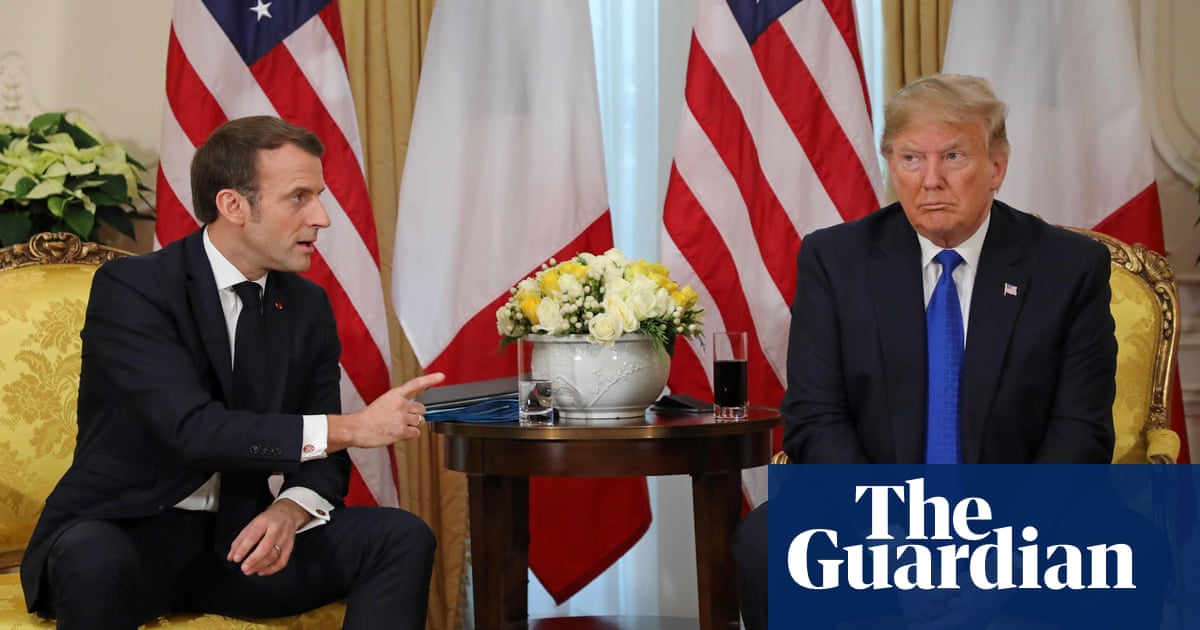Last week one of the main themes to come out of Cop29 was the need to reform the entire process. The impetus for that came after this piece in which a group of influential climate policy experts said the Cop system was no longer fit for purpose.
In response the Guardian has published a series of letters from readers debating the future of the summits.
Activists have been out at the conference in Baku this morning trying to put pressure on negotiators to agree a deal on climate finance.
Alliance of Champions calls on governments and financial institutions at COP29 to prioritise climate finance for food systems
An alliance of countries aiming to transform global food systems will reconvene today, one year after its launch at COP28, to highlight progress since Dubai and to urge governments and financial institutions at the conference in Baku to prioritise climate finance for food systems.
Co-chairs of the Alliance of Champions for Food Systems Transformation Brazil, Norway and Sierra Leone, alongside founding members Cambodia and Rwanda, released an ACF Ministerial Statement, as well as a series of ‘Progress Snapshots’, highlighting key successes in each country and setting out priorities for further work.
“We need to see a rapid and sustained increase in both the overall quantum of climate finance and the proportion going towards transforming food systems, which are estimated to require $500 billion per year over the next decade,” the statement said. “Despite being responsible for a third of greenhouse gas emissions, 90% of deforestation and 60% of biodiversity loss, Food systems received just 3.4% of the total $115.9bn climate finance mobilised by developed countries in 2022.
The snapshots, which showcase progress from across the ACF member countries since launch, include:
-
In Brazil, a National Program for Productive Forests (Programa Nacional de Florestas Produtivas) to promote sustainable agroforestry practices, enhance food production, generate employment, and restore degraded areas. The program’s initial phase targets the state of Pará and supports Brazil’s wider commitments to restore 12 million hectares by 2030 and create up to 2.5 million jobs.
-
In Cambodia, the deployment of 1,600 agriculture officers in agricultural communes across the country, developing modern agricultural cooperatives to improve access to markets, capital and water, whilst also increasing the economic efficiency and sustainability of smallholders;
-
In Norway, an annual policy dialogue with farming unions to negotiate policy measures that are tailored to farmers’ needs, delivering a ‘bottom up’ participatory approach that is designed to deliver against the country’s national and international commitments;
-
In Rwanda, a commitment by 2030 to halve per capita food waste at the retail and consumer levels and to reduce food losses in farm production and along supply chains, including post-harvest losses.
-
In Sierra Leone, the implementation of the national flagship ‘Feed Salone’ strategy is sustainably driving local food production by making agriculture more competitive for investment, decreasing food imports and supporting smallholder farmers, especially women and youth.
Alliance called on other governments to join them.
“Today, we are also calling for governments who share our ambition to create a fairer, healthier and more prosperous future to join us. The actions that each of us take within our borders can enhance our peoples’ food and nutritional security, boost equity and livelihoods, increase climate resilience, protect and restore nature, and help mitigate climate breakdown.”
In response to this ask, Tanzania has officially announced today its intention to join the ACF and is set to become the newest member of the coalition.
H.E. Paulo Teixeira, Minister of Agrarian Development and Family Farming, Brazil, and co-chair of ACF, said: “As Brazil looks towards COP30 next year, I am proud to be part of this important Alliance which continues to make the case for fairer, more sustainable food systems. Whether it is tackling hunger, supporting family farmers to produce nutritious food sustainably, driving the agro-ecological transition or protecting the rainforest, we can only improve outcomes in the long run if we look at the system holistically. To do that, we must address the climate finance gap for food systems at COP29”.
As we wait for day nine to get going it is worth looking back at the closing summary from yesterday when the overriding feeling from negotiators was frustration as progress continued to prove elusive. Let’s hope for more positive news today.
Yesterday’s closing summary:
-
As day eight began, the climate talks entered the phase known as the ‘valley of death’
-
Raising funds to finance climate fight is feasible, economists say from my colleague Fiona Harvey
-
Cop was boosted as G20 reaffirms transition from fossil fuels, although some felt the Brazil meeting could have gone much further
-
Analysis showed that hundreds of lobbyists for industrial agriculture were attending the Cop29 climate summit in Baku
-
UK, New Zealand, and Colombia join coalition to phase out fossil fuel subsidies
Away from Cop29 my colleagues at the Guardian have pulled together a striking article outlining the real world consequences of the escalating climate crisis. Outlining the extent of rising temperatures and more extreme rainfall it is essential reading – and a stark reminder of why rapid action is needed to rapidly reduce emissions.

Patrick Greenfield
Argentina to stay in the Paris agreement – foreign minister
It’s day nine at the Cop29 talks in Baku and the swarms of delegates have started to thin. The morning queues are not as long. Tired negotiators have been working late into the night as the climate summit builds to a crescendo.
One delegation that will not be in the room for the end of Cop29 is Argentina who withdrew their representatives after just three days. The South American country, led by the climate denier Javier Milei, had said it was contemplating leaving the Paris agreement after it made the decision. There have been rumours that the country was set to announce its departure within days, particularly when Milei became the first world leader to meet Donald Trump since his reelection.
But now, the country’s foreign minister Gerardo Werthein has said they are staying. Speaking to El Observador, he said that the country was simply reevaluating its position given that they disagreed with parts of the Paris agreement. But Argentina will not leave the accord, he said.
Last week, observers privately wondered if the chainsaw-wielding libertarian had simply been showing off to get attention from his fans abroad. Milei – one of the most prolific world leaders on X – has been reposting memes hinting that he was minded to block the mention of climate change in G20 declarations but ultimately did not.
Last week’s decision to remove its representatives has started to have consequences for delegates from civil society who sometimes get their accreditation from their home countries.
Tais Gadea Lara, a climate reporter from Argentina, posted photos on social media of civil society representatives who had their access cancelled due to Argentina’s withdrawal from Cop29. Other delegations are helping them out, she reports, but it is a reminder of the vast network of people that come to these summits all working towards the same thing.
Good morning. Day nine at Cop29 and we’ll be following all the developments here. I’m Matthew Taylor, please send me your thoughts and suggestions at matthew.taylor@theguardian.com



Leave a Comment